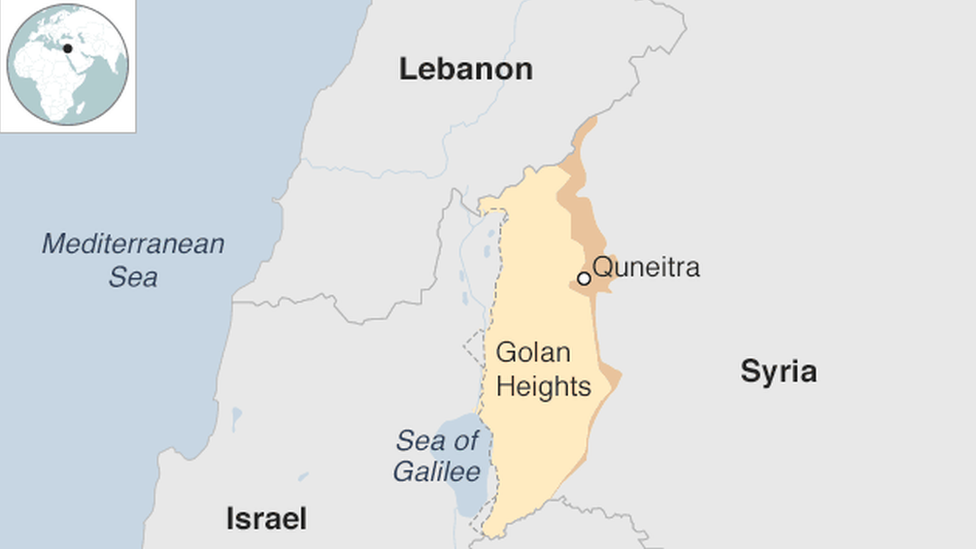Golan Heights: Syria condemns Donald Trump's remarks
- Published
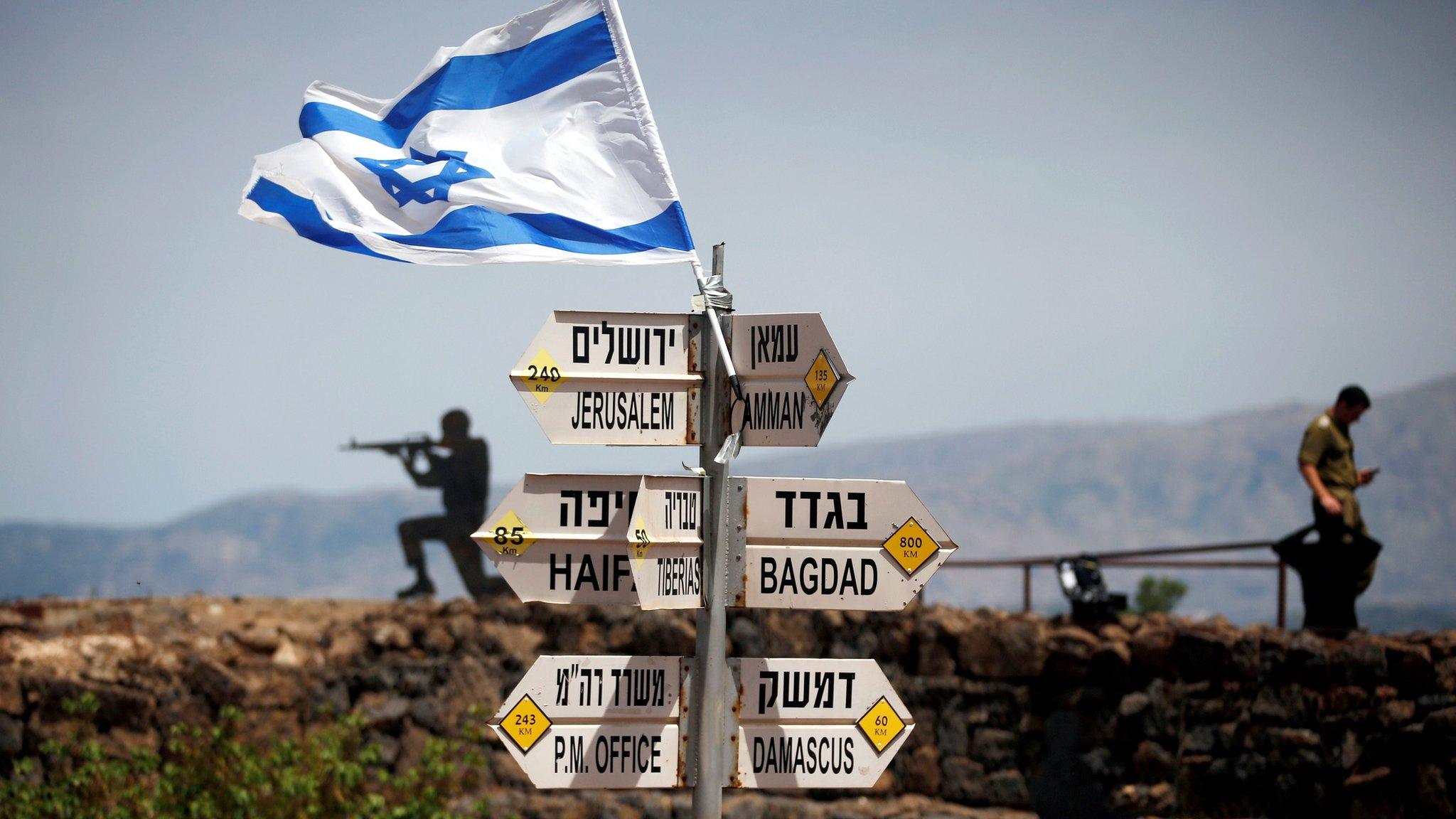
The Golan Heights has a political and strategic significance which belies its size
Syria has condemned as "irresponsible" US President Donald Trump's comments that it was time to recognise Israel's sovereignty over the occupied Golan Heights.
A statement published by the Syrian state news agency said it showed the "blind bias" of the US towards Israel.
It said Syria was determined to recover the area "through all available means".
Israel captured the Golan Heights from Syria in 1967 and annexed it in 1981 in a move not recognised internationally.
Israel wants to contain the military presence of its arch-enemy Iran in Syria, which has grown stronger throughout eight years of conflict.
Mr Trump's remarks on Thursday overturned decades of US policy on the issue. In a tweet, he said the plateau was of "critical strategic and security importance to the State of Israel and regional stability!", external
Israeli Prime Minister Benjamin Netanyahu thanked the US president in a phone call, telling him "you've made history".
How did Syria respond?
The statement carried by the Sana news agency said Mr Trump's comments had shown "contempt" for international law and that they would not change "the reality that the Golan was and will remain Syrian, Arab".
"The Syrian nation is more determined to liberate this precious piece of Syrian national land through all available means," the unnamed foreign ministry source added.
Mr Trump's remarks come as Mr Netanyahu faces a closely fought general election on 9 April, as well as a series of possible corruption charges.
The two leaders are due to meet in Washington DC next week, when Mr Netanyahu is due to address the pro-Israel lobbying Aipac group.
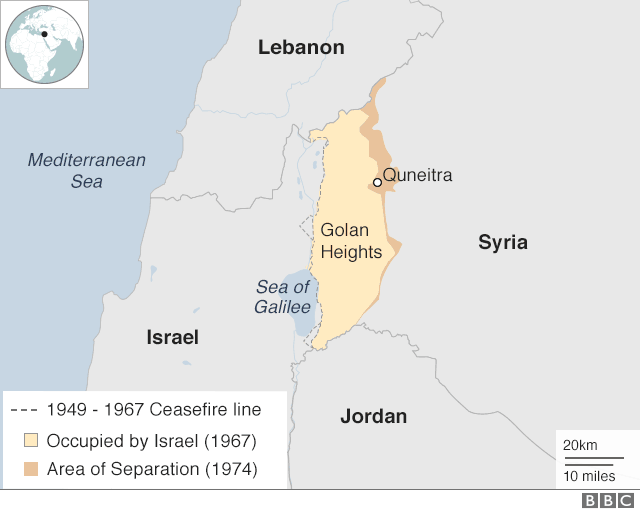

In 2017, Mr Trump recognised Jerusalem as Israel's capital and ordered the relocation of the US embassy to the city from Tel Aviv.
The decision was condemned by Palestinians, who want East Jerusalem to be the capital of a future Palestinian state, and the UN General Assembly demanded its cancellation.
What other reaction has there been?
Mr Netanyahu tweeted his thanks to Mr Trump, external, saying: "At a time when Iran seeks to use Syria as a platform to destroy Israel, President Trump boldly recognises Israeli sovereignty over the Golan Heights". The US ambassador to Israel, David Friedman, praised Mr Trump's "moral, courageous and just decision".
The EU says it does not recognise Israeli sovereignty over the Golan, and its position on the issue "has not changed".
The US president has faced strong criticism from the region, as well as some of Syria's allies:
Russia, which has been providing military support to President Bashar al-Assad in the Syrian conflict, said a change in the status of the Golan would be a direct violation of decisions taken by the UN
Iran, whose forces are also backing the Syrian president, called the US position "illegal and unacceptable"
Turkish President Recep Tayyip Erdogan, who has supported the Syrian opposition in the war, said the remarks had "brought the region to the brink of a new crisis"
Arab League Secretary-General Ahmed Aboul Gheit said the announcement was "completely beyond international law"
Richard Haass, a former senior US state department official who is now president of the Council on Foreign Relations think-tank, said he "strongly disagreed" with Mr Trump and that the decision would violate a UN Security Council resolution "which rules out acquiring territory by war".

A good surprise for Netanyahu

If the announcement came as a surprise, it was a good surprise for Mr Netanyahu. And the surprise would have been in the timing, not the substance, because the idea of the US recognising Israel's sovereignty over the Golan has been under active consideration for some time.
Israel has gained traction in the White House and parts of Congress by arguing that Iran is using Syria as a base from which to target Israel, with the Golan Heights as the front line. But the formal US recognition doesn't change anything on the ground: Israel was already acting with full military authority.
Critics have concluded this was a blatant attempt to give Mr Netanyahu a boost in a hotly-contested election. If so, it's one that violates important principles of international law, they say: Mr Trump has endorsed the seizure of territory, and will have no moral authority to criticise Russia for doing so in Ukraine's Crimea.

What are the Golan Heights?
The region is located about 60km (40 miles) south-west of the Syrian capital, Damascus, and covers about 1,000 sq km (400 sq miles).
Israel seized most of the Golan from Syria in the closing stages of the 1967 Middle East war, and thwarted a Syrian attempt to retake the region during the 1973 war.
The two countries agreed a disengagement plan the following year that involved the creation of a 70km-long (44-mile) demilitarised zone patrolled by a United Nations observer force. But they remained technically in a state of war.
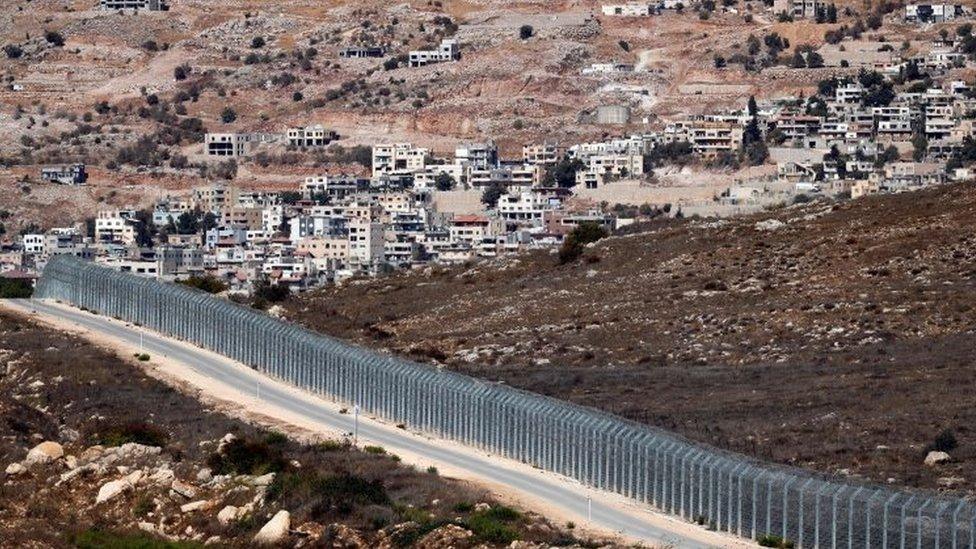
Syria will not agree a peace deal with Israel unless it withdraws from the whole of the Golan
In 1981, Israel's parliament passed legislation applying Israeli "law, jurisdiction, and administration" to the Golan, in effect annexing the territory. But the international community did not recognise the move and maintained that the Golan was occupied Syrian territory. UN Security Council Resolution 497 declared the Israeli decision "null and void and without international legal effect", external.
Three years ago, when former President Barack Obama was in office, the US voted in favour of a Security Council statement expressing deep concern that Mr Netanyahu had declared Israel would never relinquish the Golan, external.
Syria has always insisted that it will not agree a peace deal with Israel unless it withdraws from the whole of the Golan. The last US-brokered direct peace talks broke down in 2000, while Turkey mediated in indirect talks in 2008.
There are more than 30 Israeli settlements in the Golan, which are home to an estimated 20,000 people. The settlements are considered illegal under international law, although Israel disputes this. The settlers live alongside some 20,000 Syrians, most of them Druze Arabs, who did not flee when the Golan was captured.
- Published22 March 2019
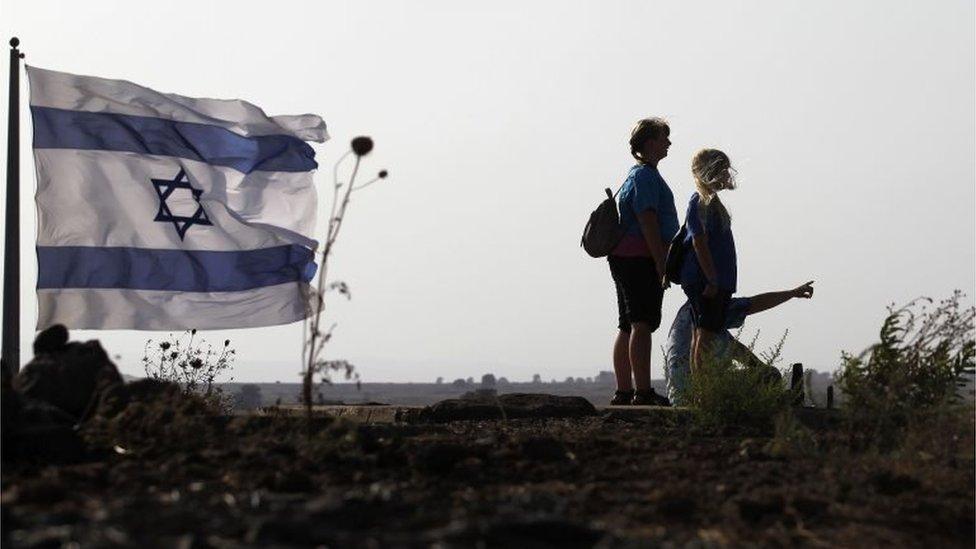
- Published21 March 2019
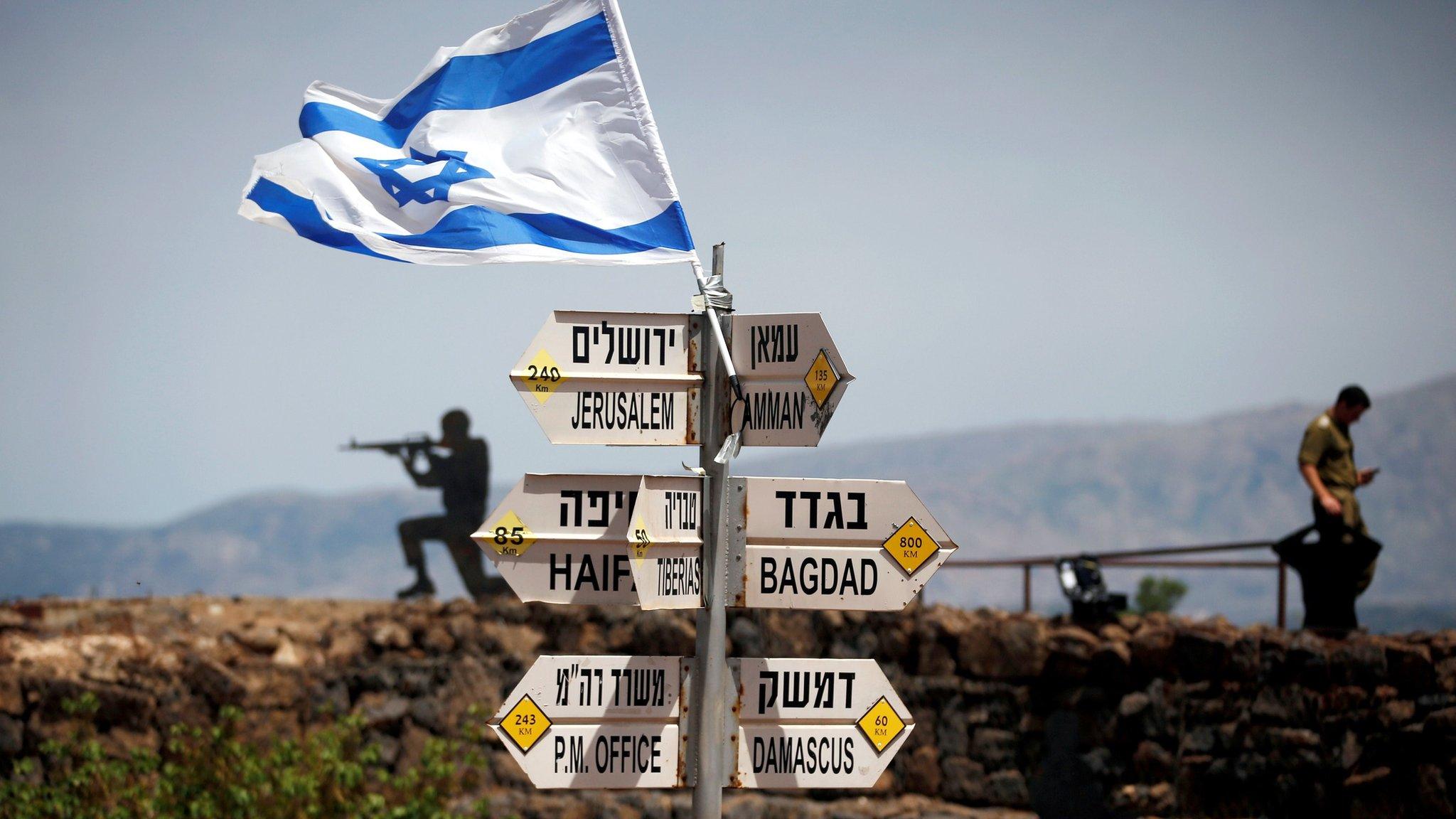
- Published29 August 2023
